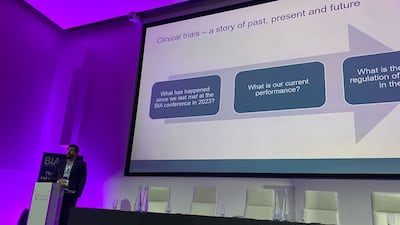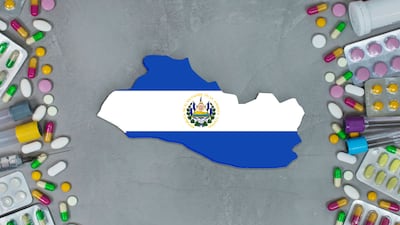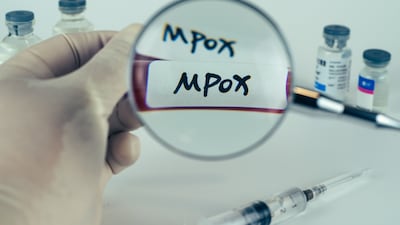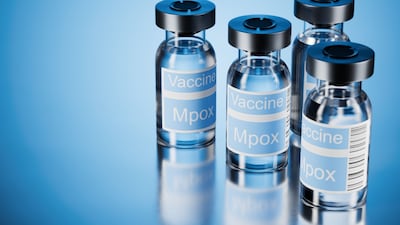Asia

China has proposed new guidelines designed to head off potential bribery by pharma companies related to the conduct of clinical studies and possible manipulation of outcomes.

Along with several new positive approval recommendations, Japan's proceeding to grant Sakigake designation to two drugs including a DMD gene therapy discovered through public collaboration. Meanwhile, the PMDA has opened a new full-time office in the US.

The UK’s drug regulator, the MHRA, is exploring new opportunities to work closer with its counterparts from Australia, Canada, Singapore and Switzerland under the ACCESS Consortium group, with a focus on pre-submission scientific advice.

The move towards greater regulatory collaboration is a positive step for gene therapy developers, Astellas’ gene therapy strategy lead Richard Wilson says – adding, however, that pharma still needed to understand the Asian markets better.
Europe

With approval applications for new active substances expected to rise by 25% by 2026, the UK regulator says it wants to focus its national assessment procedure on new innovative therapies. It will also review progress with the new International Recognition Procedure.

The UK’s drug regulator, the MHRA, is exploring new opportunities to work closer with its counterparts from Australia, Canada, Singapore and Switzerland under the ACCESS Consortium group, with a focus on pre-submission scientific advice.

Regulators do not have the resources to “double check” that companies are using AI appropriately, meaning that manufacturers must ensure the AI tools they use meet relevant standards, says an EU regulatory expert.

Some stakeholders say that the entry criteria for the licensing and access pathway have been too broad, leading to an overburdening of the scheme.
International

Stay up to date on regulatory guidelines from around the world with the Pink Sheet's Guidance Tracker. The complete Global Pharma Guidance Tracker, with sortable and searchable listings going back to 2014, is available online.

CRO executive Horst Ruppach discusses the critical factors that drug manufacturers must consider to ensure compliance with the revised ICH Q5A(R2) guideline on biologics viral safety. Thorough documentation and proactive engagement with regulatory bodies are key to navigating the complexities of viral safety evaluation in biotechnology products, he says.

The move towards greater regulatory collaboration is a positive step for gene therapy developers, Astellas’ gene therapy strategy lead Richard Wilson says – adding, however, that pharma still needed to understand the Asian markets better.

The Pink Sheet highlights recent comments and insights from pharma officials and executives on key issues we are covering.
Latin America

The deal comes at a time when Latin American countries are increasingly looking to improve the regulatory environment for pharmaceuticals and move towards greater convergence.

Mexico is to establish a new regulatory framework that is in line with international standards to encourage domestic production of biosimilar medicines.

El Salvador has approved a law that will establish a new regulatory body responsible for authorizing medicines and setting prices.

Mexico aims to speed up the registration of generics and biosimilars.
Middle East & Africa

A newly published draft implementing act sets out the procedural rules for the joint scientific consultations that are foreseen by the EU’s Health Technology Assessment Regulation.

The World Health Organization has also prequalified the Bavarian Nordic vaccine to enable broader and timely access.

Companies marketing pharmaceutical products in Saudi Arabia are being urged to prepare for upcoming mandatory pharmacoeconomic assessments to demonstrate the added value of their drugs over existing treatments.

The Democratic Republic of Congo, the country worst hit by the mpox crisis, has now received the first batch of vaccines for the disease. Meanwhile, the World Health Organization is expected to complete its review for emergency use listing of mpox vaccines soon.
North America

The former CDER Director spoke to the Pink Sheet about why a new statutory standard is needed for certain rare disease drug approvals. We lay out some of her thinking in part one of a multi-part series on the topic.

Many speakers at the Galien Forum were uncertain about changes the new Trump Administration could make the Inflation Reduction Act (IRA), National Institutes of Health funding and other areas.

US FDA Commissioner Robert Califf offers some thoughts on improving the informed consent process during a Patient Engagement Advisory Committee meeting that reflect concerns informed consent documents are too long and complex, but also do not address everything that may be important to patients.

GSK’s Arexvy and Pfizer’s Abrysvo are FDA-approved for individuals younger than 60 years old, but CDC’s Advisory Committee on Immunization Practices wants more data on Guillain-Barré syndrome cases in older adults and efficacy in severely immune-compromised persons before making a recommendation.